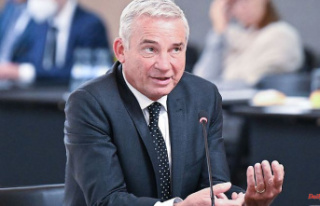For months, the Iranian regime has been brutally suppressing protesters' protests in the country. At the request of the USA, the UNO now decides to exclude the country from a body for women's rights. Iran's UN Ambassador Ivanani is outraged.
The United Nations has expelled Iran from the UN Commission on Women's Rights over its brutal crackdown on protest movements in the country. 29 member states of the UN Economic and Social Council (ECOSOC) voted to exclude Iran from the body on women's rights. Eight countries, including China and Russia, voted against and 16 countries abstained.
A simple majority was required for the USA's proposed exclusion of Iran from the Women's Rights Commission. The resolution for an expulsion states that the leadership in Tehran is undermining and increasingly repressing the "human rights of women and girls, including the right to freedom of expression, often with the use of excessive force".
Iran has been shaken by a wave of protests since the death of the young Iranian Kurd Mahsa Amini on September 16. Amini was previously arrested by the vice squad on charges of violating the country's strict dress code. Women play an important role in the anti-government protests in Tehran. The country's security forces are cracking down on the protests with great violence.
In early November, US Vice President Kamala Harris announced that the US would work with other countries to exclude Iran from the UN Commission on Women's Rights. Iran had been elected to the body for the period 2022 to 2026, which is committed to gender equality and the promotion of women's rights.
Iran's UN Ambassador Amir Saeid Iravani accused the US of harassment. Together with 17 other member states, he warned the Social and Economic Council of a precedent "that will ultimately prevent other member states with different cultures, customs and traditions (...) from participating in UN commissions".












